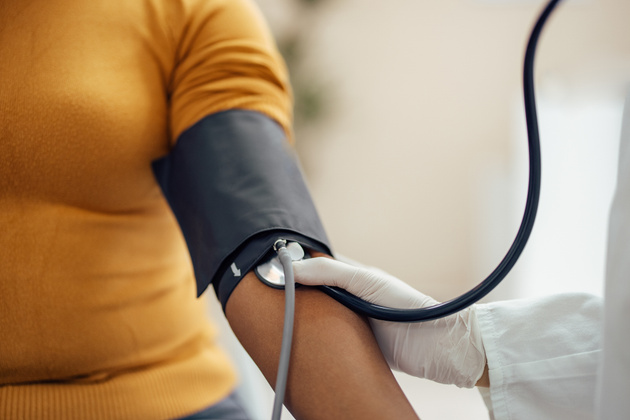Hypertension Disease
Blood pressure values above 40/90 mmHg are considered hypertension. Hypertension; It is a disease that causes complications such as heart attack, stroke, heart failure, kidney failure and shortens life expectancy in women and men.

What is blood pressure?
Our heart sends the blood necessary for the vitality of the tissues to the body by contracting and relaxing movements. When the heart contracts, the blood in the cardiac cavity is thrown towards the arterial system. In the relaxation movement, the heart refills with blood. This process continues periodically. The pressure exerted by the blood on the artery walls at a particular moment is called blood pressure. The blood pressure during contraction is called systolic blood pressure, and the tension during relaxation is called diastolic blood pressure.
What is hypertension?
Blood pressure values above 140/90 mmHg are considered hypertension. It is a disease that causes complications such as heart attack, stroke, heart failure and kidney failure and shortens life expectancy in men and women.
In approximately 90-95 percent of hypertension cases, no cause is found. However, there are risk factors such as obesity, smoking, poor nutrition, and familial predisposition.
What are the symptoms of hypertension?
2 out of every 3 people are not aware that they have hypertension. Because hypertension may not cause serious symptoms before causing organ damage. Common complaints about consulting a doctor; It may be in the form of headache – neck pain, feeling of warmth in the head, flushing of the face, flushing, feeling of pressure in the chest, need for deep breathing, feeling of palpitations, chest pain, ringing in the ears and lack of concentration.
How is hypertension treated?
The goal of hypertension treatment is to reduce blood pressure to normal values and reduce organ damage due to high blood pressure. Treatment planning varies depending on whether there are other diseases accompanying hypertension, cardiovascular risk status, and whether target organ damage caused by hypertension occurs. Lifestyle changes consisting of effective nutritional changes, reduced salt intake, weight loss, moderate alcohol intake and increased consumption of vegetables and fruits, and more frequent blood pressure monitoring are also very important in the treatment of the disease.
The most important consequence of untreated hypertension is cardiovascular diseases. Other important consequences that occur when blood pressure is not adequately controlled are cerebral hemorrhage and stroke, heart failure and heart attack, kidney failure, and vision loss. If blood pressure is not controlled, it leads to heart failure in 51 percent, stroke in 33 percent, and death due to cardiovascular diseases in 21 percent.
Common misconceptions about hypertension
Incorrect: “I am old so it is normal for my blood pressure to be above 14/90 mmHg. The truth: No, everyone’s blood pressure targets should be below 140/90 mmHG, except those with chronic kidney failure and diabetes.
False: “Drugs are addictive and have no effect after a while, so you should not use medication for a long time.” Correct: Hypertension medications are not addictive, they should be used continuously.
Wrong: “I stopped taking my medication and my blood pressure is normal. “I don’t need to take medicine anymore.” The truth: Hypertension medications are not addictive and should be used continuously.



